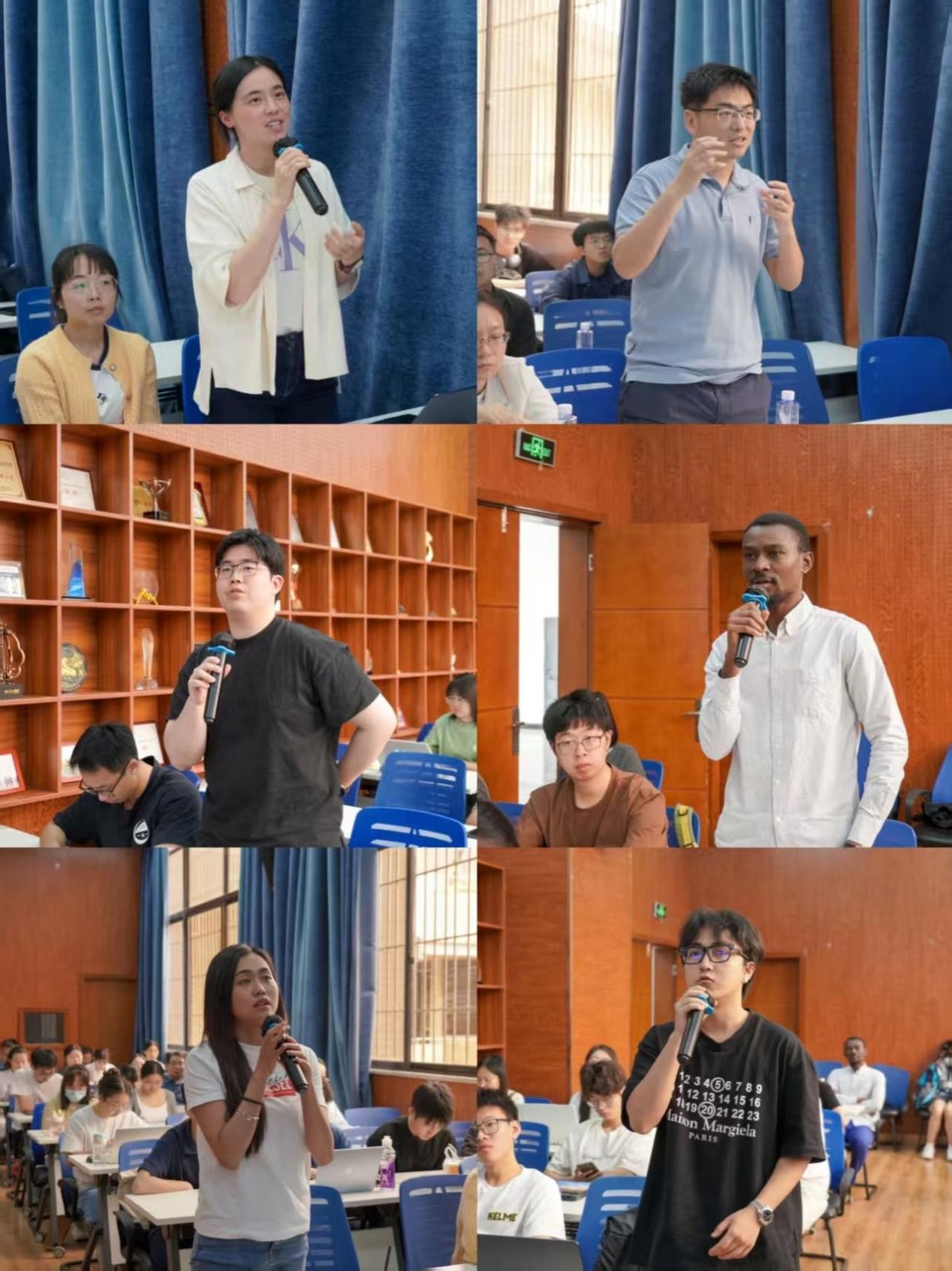May 9, 2025 | Chengdu—School of Economics and Management (SEM) at Southwest Jiaotong University (SWJTU) successfully hosted Workshop on Intelligent Transportation and Transport Optimization, bringing together leading scholars and researchers to explore cutting-edge advancements in smart mobility and transport system efficiency.
Presided over by Professor Han Ke, Dean of SEM, the workshop featured four distinguished guest speakers from renowned institutions, including The Hong Kong Polytechnic University, Xi'an Jiaotong-Liverpool University, and Korea Advanced Institute of Science and Technology (KAIST). The workshop aimed to promote interdisciplinary dialogue and foster academic collaboration on cutting-edge topics in intelligent transportation systems and optimization technologies.
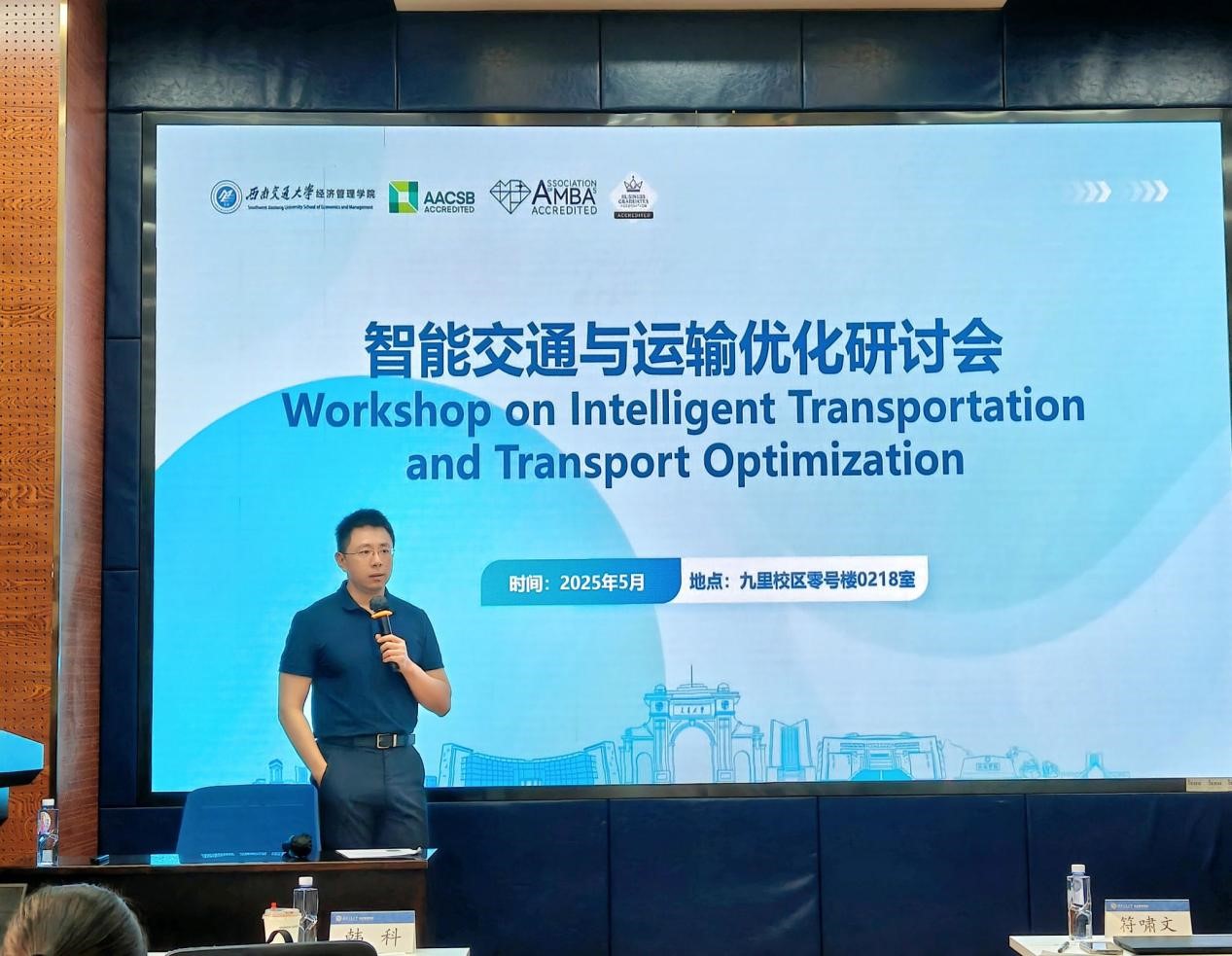
In his opening remarks, Professor Han highlighted the growing interdisciplinary connections between transportation and economic management, and emphasized the growing importance of cross-disciplinary integration in advancing intelligent transportation solutions.
Dr. Ding Hongliang from Institute of Smart City and Intelligent Transportation then introduced the keynote speakers, highlighting their significant contributions to research in intelligent transportation, transport system optimization, and related research areas.
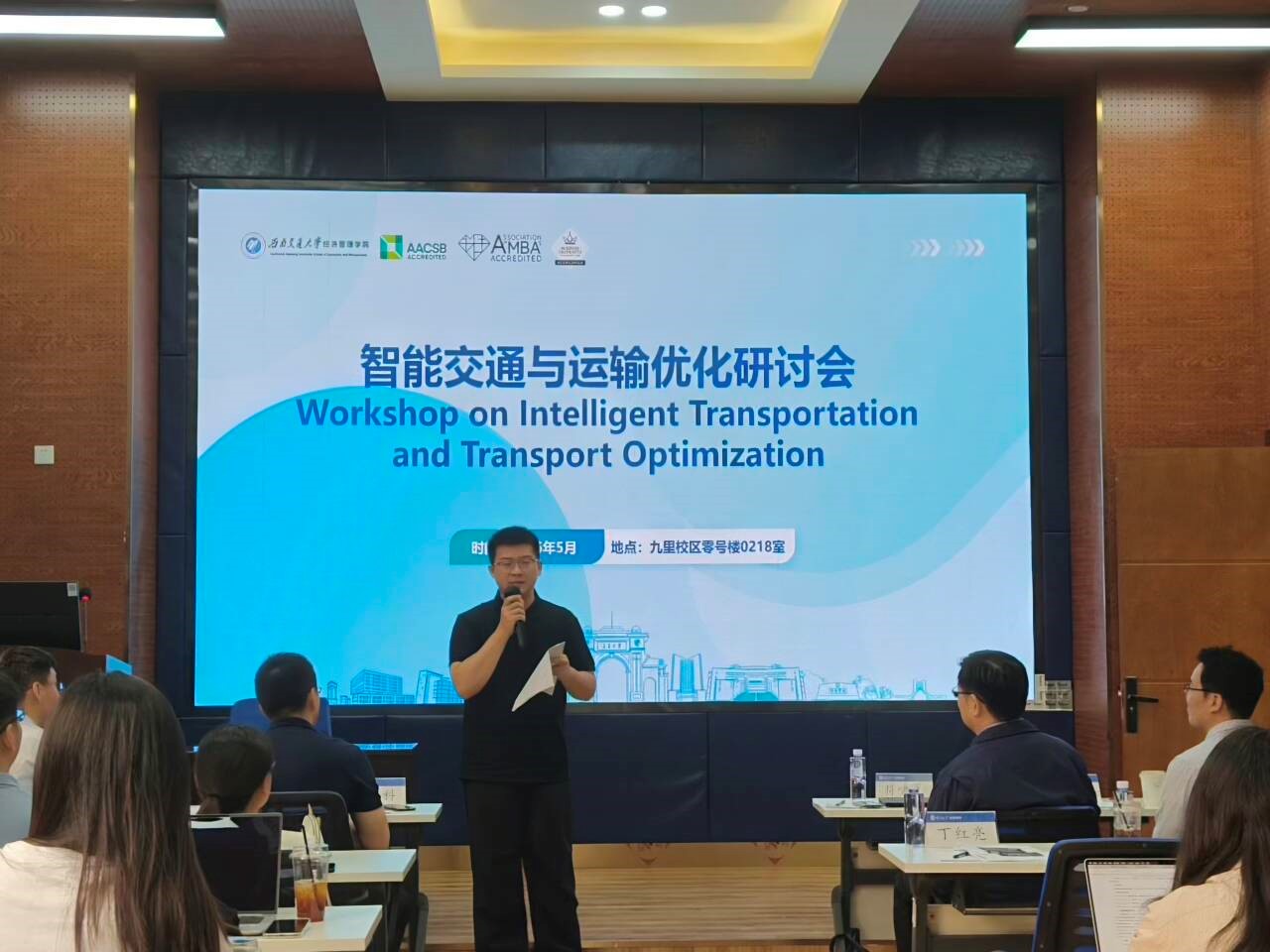
The technical sessions commenced with a presentation by Professor Fu Xiaowen from The Hong Kong Polytechnic University, titled “The economic and policy implications of autonomous driving – preliminary analysis and discussions”. Drawing on consumer behavior models, Prof. Fu examined willingness-to-pay for autonomous vehicles and discussed how government intervention—through mechanisms such as taxation and subsidy policies—could influence market dynamics and enhance overall social welfare. The Q&A session sparked a lively discussion on public attitudes toward AI investment and methods for evaluating related policies.

This was followed by a talk from Assistant Professor Wang Kun, also from The Hong Kong Polytechnic University on “Decarbonizing aviation through sustainable aviation fuel: operations research, economic analysis, and policy insights”. Addressing one of the most pressing environmental challenges in global transport, Asst. Prof. Wang analyzed the effectiveness of Sustainable Aviation Fuel (SAF) in addressing these emissions, presenting findings from three recent modeling studies. The discussion sparked active engagement on the trade-offs between reducing aviation costs and the higher expense of SAF, as well as the impact of varying fuel efficiencies.

Associate Professor Hyung-Chul Chung from Xi'an Jiaotong-Liverpool University presented a case study on “The 15-minute community life circle for older people: Walkability measurement based on service accessibility and street-level built environment – A case study of Suzhou, China”. Chung explained the concept of the 15-minute community life circle (15-minute CLC), detailed the study’s data sources and methodology, and shared its main findings. In the Q&A session, he had an in-depth exchange with students on the pedestrian-friendly infrastructure for aging populations, offering practical insights for inclusive urban planning.
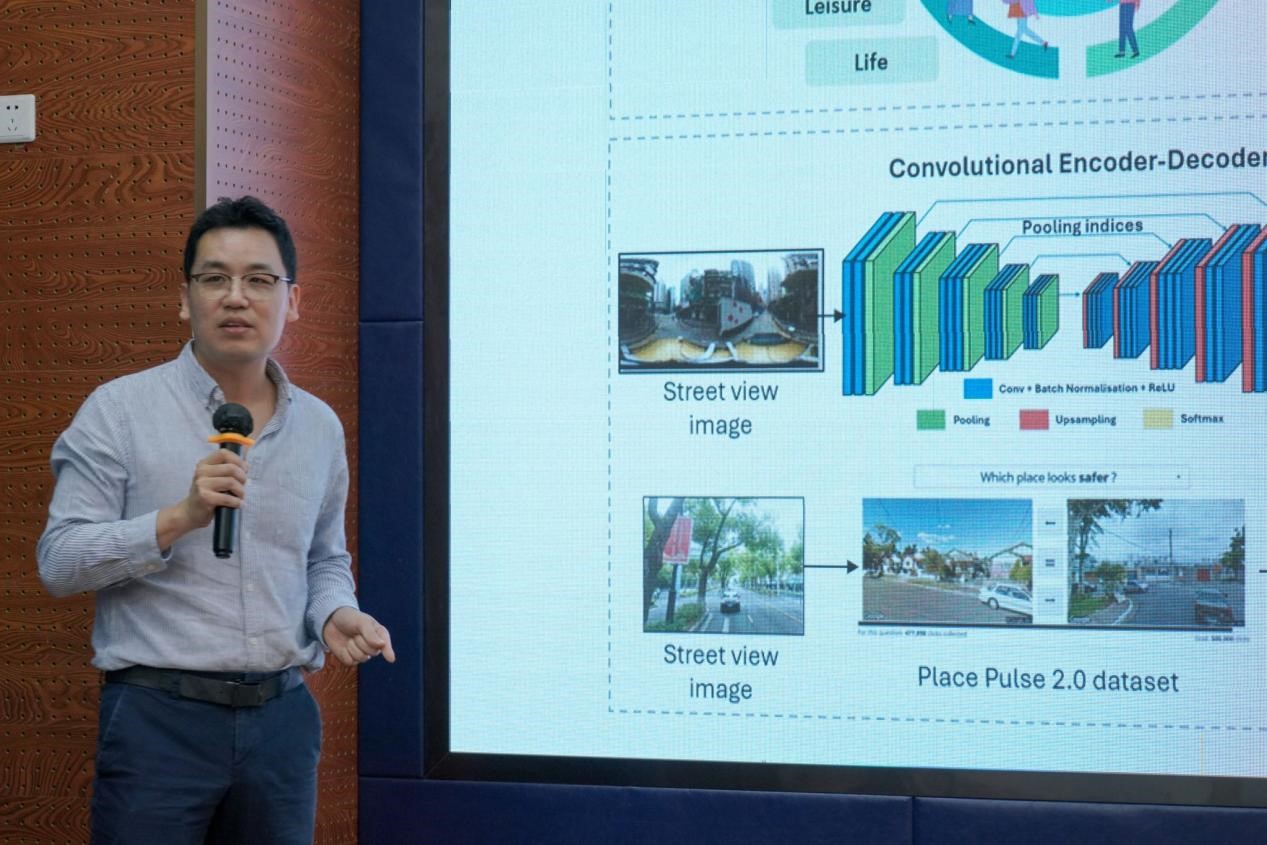
Rounding out the program, Assistant Professor Chen Tiantian from Korea Advanced Institute of Science and Technology (KAIST), delivered a thought-provoking speech on “Human factors research in the era of transport automation”. Chen began with a brief overview of her lab’s research direction and team composition. Focusing on the traffic safety in an automated transport context, she explored the various factors that affect traffic risk. Chen emphasized the critical role of human factors in autonomous driving systems and highlighted the diversity of research subjects, including drivers, passengers, and vulnerable road users. During the Q&A session, she led an in-depth discussion with faculty and students on the synergistic application of multi-source data in traffic accident research.
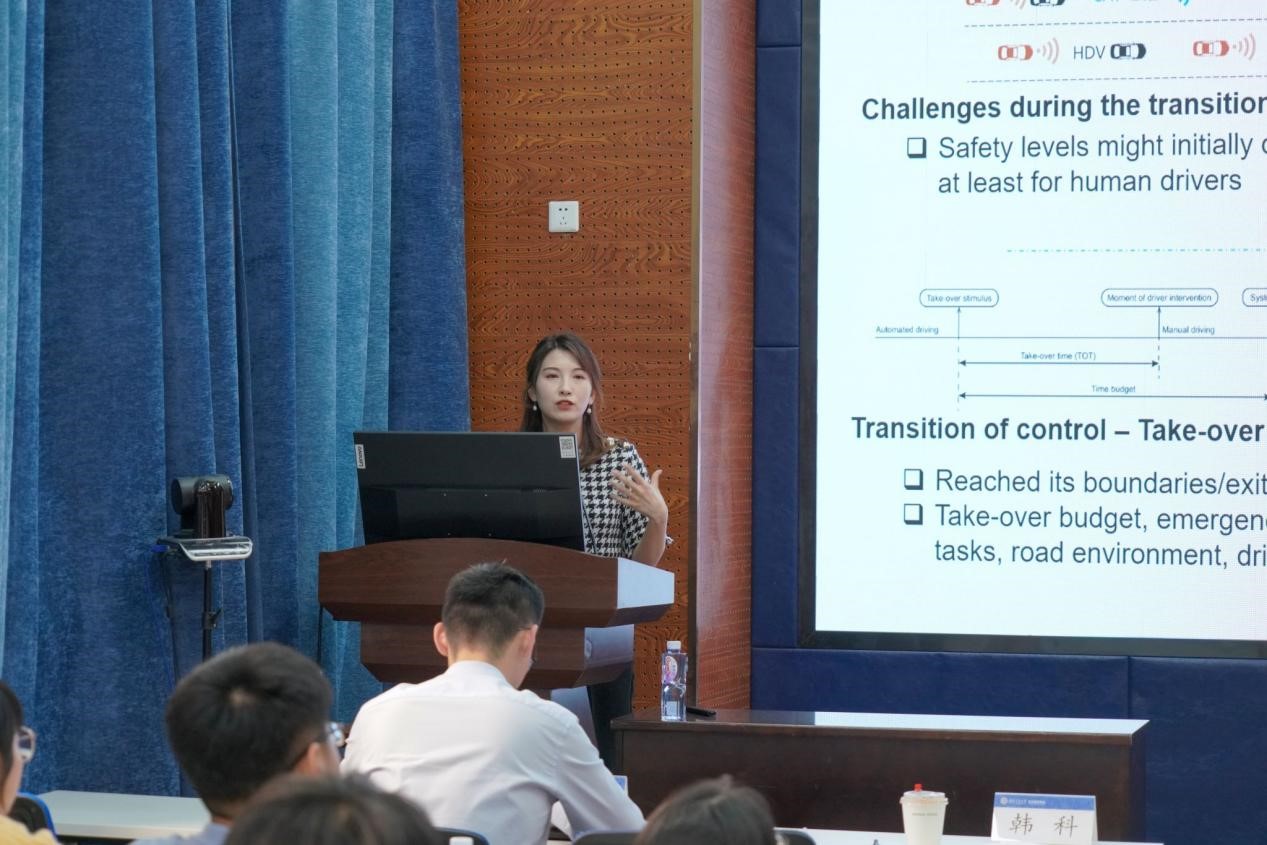
Rich in content and cutting-edge perspectives, the workshop not only showcased the latest research in intelligent transportation but also provided a valuable platform for academic exchange. The guest experts shared unique insights on key topics such as autonomous driving, green aviation, community accessibility, and human factors engineering, sparking research interest and critical thinking.
Looking ahead, SEM will continue strengthening international partnerships to drive impactful scholarship and contribute to the development of safer, smarter, and more sustainable transportation systems worldwide.
